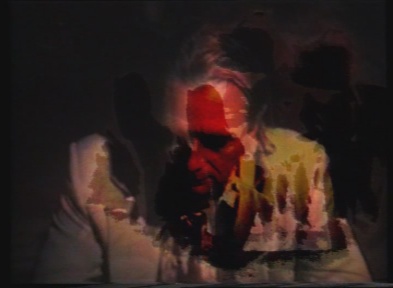To the ones who say yes and no,
Some people study to become anthropologists, others are born that way. Martin Rumsby has been an anthropologist of the heart for many decades now, scouring the backrooms of North America in search of a formalist cinema that would change the quality of attentions public and private. His innumerable presentations became a nomadic school where he could share the wonder of first encounters and beginner’s mind, and it was in these relational settings, between the dark frames of the film and the bright light of the projector, between the darkening rooms and the light that allowed audiences to find themselves, that he began his own forays into filmmaking.
He made many films in Chicago, including a suite of interviews with the iconoclastic feminist philosopher and art critic Chris Krauss. How could he know that ten years after these bracing exchanges her star would rise again and she would stand at the forefront of an oppositional writing practice, while being included in the Whitney Biennale at the same time? His most noted work of the period is a film made in the style of Tom Palazzolo, a celebration of everyday encounters he named Brown’s Barbeque. In order to make pictures that have roots it is necessary to make an approach to the image, and here he creates this approach with a disarming and unaffected camera that camps out in the midst of a family barbecue. It’s intimate and up close, and he’s not afraid to say a few words to the kids when they’re playing it up for his camera. He’s not trying to be objective, in other words, to act like the furniture, an object, he’s trying to be present while life is happening and flowing and while he is seeing. His off kilter framings allow his subjects to flow in and out of the frame, unafraid to perform their sadness, their anger, their casual dancing in this forsaken parking lot of a neighbourhood gathering. He’s part of the scrum and also apart from it, it’s not his best friends gathered here, but they’re not strangers either. Of course, he’s the only white man in a country where apartheid is no longer a law but remains the rule. Somehow, again and again, he finds the right distance, the space where looking becomes ethics.
It is this method of approach that he intends to bring to his suite of new works in Thailand, where the poetics of first-person imagings meets up with a cinema of encounters, where those behind and in front of the camera can dream together and share the same picture. Please offer him your support and let him share these necessary meetings.
Mike Hoolboom
August 2014
